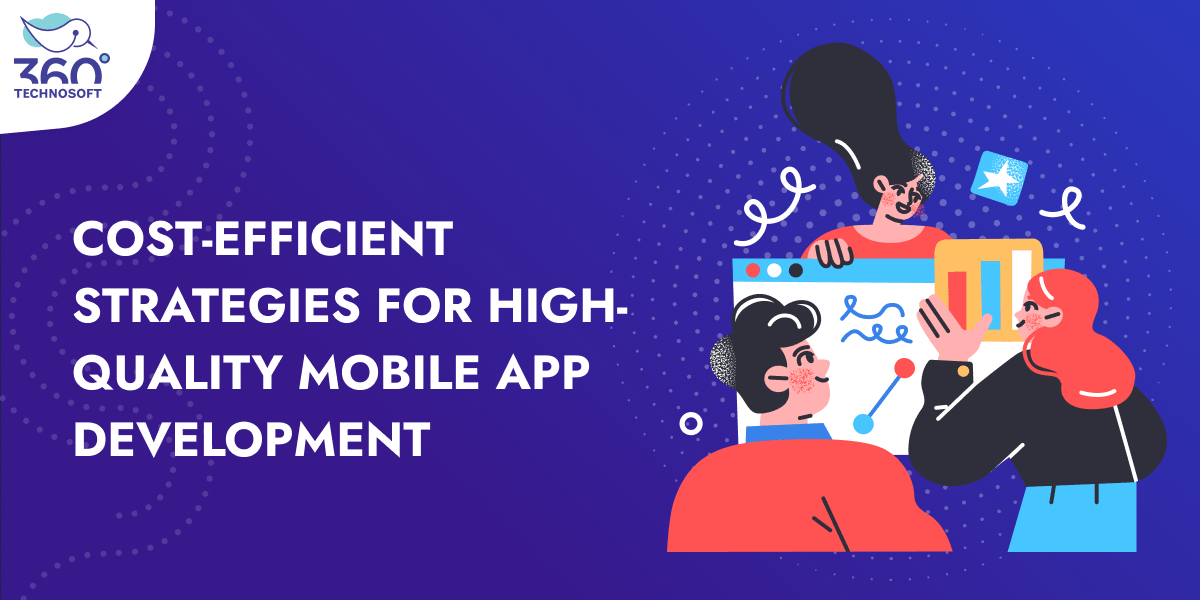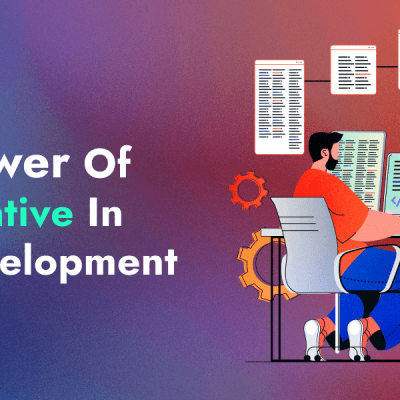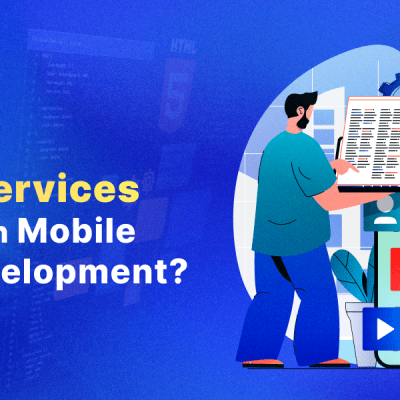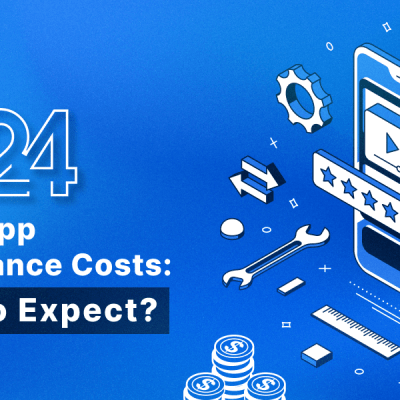When it comes to mobile app development, the most important thing is to plan an effective strategy to deliver high-quality results. Due to cutting-edge competition, the app that you develop needs to stand apart from the plethora of apps with similar features in the market. Do not worry, this can be accomplished easily with the right strategies and tactics.
Discussing the best strategies for high-end mobile app development with your mobile app development team is significant. The following guide will let you know the best ways to implement strategies that could reinvent high-quality mobile app development.
Mobile App Development Strategy- An Overview
Mobile app development strategy is building a blueprint or a roadmap that you need to follow to build a seamless mobile app. It must also contain all the parameters you expect to provide to the user.
The purpose of applying this strategy to work is to save time and money and by choosing not to integrate superfluous features and upgrades. The following decisions also need to be made while defining mobile app strategy:
- Defining Data Accessibility
- App capabilities
- Data Management
- Security protocol design
- Setting up user profiles
Now that you understand the crux of effective mobile app development strategy let’s check out the best mobile app development strategies for your business.
Different Mobile App Development Strategies
Below are a few strategies that can work wonders for your custom-built mobile app as per your requirements. Along with that, we will also provide insight into how strategies can improve your app’s performance and make your business prosper.
1. Application Development Type
Before you start developing a decent mobile app for your business, there are different kinds of app development platforms you need to consider. Such multi-faceted approaches will allow you to save money. Below are the best types of mobile app development you need to consider that could help you in your long-term vision:
| Factor | Native Apps | Cross-platform Apps | Web Apps |
|---|---|---|---|
| Definition | Native apps are built for a specific OS which can be either for iOS or Android. | Cross-platform apps are compatible with different OS platforms and mobile devices. | Web apps can be developed on remote servers and are accessible through the Internet which is why you do not need to install them. |
| Programming Language | Swift, Objective-C, Java, Kotlin | HTML, CSS, JavaScript | HTML, CSS, JavaScript |
| Cross-platform Support | No | Yes | Yes |
| Performance | High | Medium to High | Medium to High |
| Examples | Twitter, LinkedIn, and Google Maps | Uber and Instagram | Netflix and Google Docs |
The right app development type is different for all individual entrepreneurs. Cross-platform app development is utilized for the quick release of an app in the market. Native app development is utilized for its robust performance. These are two distinctly different types of apps so make sure you understand the differences between them. Every app development type comes with its own unique set of features, pros, and cons which is why you need to identify what your business demands first.
Benefits of Native, Cross-platform & Web Apps
| Native Apps | Cross-platform Apps | Web Apps |
|---|---|---|
| High performance | Faster time to market | Cross-platform compatibility |
| Safer than others | Reduced software development costs | More manageable |
| More interactive and intuitive | One source code | Highly deployable |
| Get access to all the features in the set of devices | Easy product maintenance | Secure live data |
| Reduced bugs during development | High demographic coverage | Ability to use hardware components |
Advantages of picking the right app development type
- To meet all the requirements for your app development.
- To see the vision of the app development process.
- To predict the duration and app creation costs.
- Gain a competitive advantage by being faster in the market.
Improve Performance with the Right Tech Stack
The right operating system also needs to be considered when it comes to the best mobile app development strategies. The developer also needs to know the type of devices that you are targeting in your business for careful evaluation of tech stacks.
A simple example will make this clear.
Say you are targeting Android users for your app. The developer would work on your app on platforms such as Java and Kotlin along with the other native and SDK frameworks. This same principle is applied to iOS app development frameworks. In other words, make sure that you educate yourself about multiple mobile app development frameworks.
You also need to have a clear vision of the tech stack about developing a mobile or a web app. This will make your app development process much more convenient for the developers as well.
Pick the right tech stack to engage your business
- It confirms that the product team can develop and manage your software product.
- The perfect tech stack will ensure that your customer’s needs are met.\
- The process is simplified and developers do not face many challenges in terms of development.
- The right tech stack will guarantee you a successful project delivery.
3. Designing an app prototype for smooth navigation
Just like the one before, this one also requires careful planning as to the kinds of devices you are targeting. Different devices need targeting which is why multiple UI designs are required for all devices.
Besides that, these interfaces and designs may have compatibility difficulties with a certain kind of operating system. This is why your app’s UI must be designed in a specific way that redefines your enterprise in the long term and is streamlined with your business objectives.
Ways in which UI design is beneficial to your business
- Engaging visuals with simple navigation attracts customers
- Grabbing user attention through UX/UI design templates
- Simple UI navigation urges customers to come back
- With the right UI strategy, maintenance costs are curtailed.
4. Generate Revenue Through Monetization of your Mobile App
Mobile apps are amazing resources when it comes to extracting revenue and capital. For investors, startups, and enterprises, mobile apps are considered cash cows. So if your business has similar interests, revenue from a mobile app can be generated easily by applying this strategy. For many businesses, app startup costs can be exorbitant, which is why monetizing your first app can be their solution out of it.
There are multiple app monetization strategies for developing enterprise-level apps like in-app purchases, in-app ads, freemium, and ads.
If your wish is to keep your app ads free, in-app ads are an amazing way to build capital and earn revenue. You will earn every time a user clicks on the ad or buys a certain product.
The primary goal for you as the owner of the app is to make the traffic on your website stay longer than intended by offering them something that they are looking for. Implementing freemium services is a good option too since it keeps basic features non-chargeable and the advanced ones chargeable.
5. Right Cloud Technology To Enhance Your App Speed
Cloud technology has swept away the enterprise business scene when it comes to the technical aspects of it. It provides an upper edge over traditional desktop-based tools. Email and CRM are some examples of cloud-based technologies that multiple customers enjoy today.
High-ended enterprises such as Netflix, Gmail, Facebook, and Dropbox are also making use of cloud technologies.
The reason why cloud technologies have been revolutionizing the business sector is due to the convenience of storing information in them. The hassle of developing multiple apps for separate platforms and devices is eliminated.
For the developer, it becomes much easier to develop an app from square one through cloud technology. The trouble of installing and maintaining the infrastructure is out of the equation which is why app development becomes much more convenient. The user, on the other hand, is provided with a quicker onboarding process than usual via cloud technology.
Ways in which Cloud Technology helps businesses
- Standardization is offered to the apps making them safer, scalable, and interoperable.
- Provides flexibility for cloud-based apps both inside and outside of the workspace.
- Pricing is reduced since cloud systems offer pay-as-you-go options to their users.
- Cloud also offers analytics for a vertical profiling of your data.
6. Enhance Customer Engagement by developing a Marketing Strategy
Before the app development process, developing a good marketing strategy is always a wise choice. There might not be any short-term results, however, in the long run, larger audiences will gather which you can then convince to use your services. This in turn will increase your sales. Hence, it is always a good idea to hype your app in the market before it even is released.
Ways in which marketing strategies can help your business
- Gives you clarity on the marketing side of the app.
- Aids in better customer service and developing a plan according to the customer’s needs.
- Helps in better customer reach in a more streamlined way to help companies grow.
- Sales cost is reduced via marketing strategies as you approach customers in better and more innovative ways.
7. Implement grid-based application development
Applying grid-based concepts to your app can increase efficiency and consistency even while users are surfing from page to page through the whole application. This can be fulfilled by making sure each element has a certain height and width along with perfect alignment at every corner of the cell. This simplifies the arduous development process for developers without too much clutter on the screen.
Grid-based applications are more beneficial and scalable as they permit the developer to resize elements without impacting any other parts of the interface. It is much easier for a developer to design an interface for a mobile user than for a desktop user. This is because he/she needs to only focus on a single screen size while desktops come in different sizes. As a result, it requires designing a single interface rather than building dozens of them.
8. Make your app ASO and SEO friendly
Just like how a website climbs the ranks of the search engine, the ranking also matters when it comes to the Play Store or the App Store. The mechanics might be different but the goal is the same- to have a wider reach and visibility for people to install your app. This is when SEO (Search Engine Optimization) and ASO (App Search Optimization) come into action.
Apps with less or no marketing budget benefit a lot from such tactics. Writers also have a major role in this since the app description must be succinct and convincing enough to entice a customer into installing the app. This is where SEO comes into action as with the right keyword optimization, your app will rank higher on searches centered around those keywords.
You can also keep an eye out for what people are searching for with the help of certain keyword tools. Hiring a mobile app development company will help ease a lot of things. This will make your app not just rank higher but also be marketed efficiently.
9. Incorporate Mobile Marketing pre-release of the app
It can be highly beneficial if you can start a trend in the market through your app. The peak season for app release in the market also rides the wave of multiple ongoing trends. Releasing your app a little earlier and scripting out marketing strategies is a good idea to test the ones that can work. Make sure to utilize optimization searches.
Mobile marketing is on the verge of being the next big thing in marketing. This is because smartphones and mobiles can be used to directly contact the client anytime with a few taps. As a result, businesses can take advantage of this and increase their sales and enhance their bottom line. Mobile applications become highly effective when it comes to closing deals with clients.
Conclusion
Now that you have reached the end of this topic, we hope you are familiar with the best ways to implement some of the best mobile app development strategies into your business app. These approaches will certainly take your app to newer and better horizons.
Applying the right strategy to your app will have more impact than implementing the ones that have minimal effect on your app. So make sure to be picky and understand the ones that are suitable for your business.
Frequently Asked Questions (FAQ)
1. What is Mobile App Development?
Mobile app development aids in building an app with the use of different tools, platforms, and technologies. Mobile apps now are compatible with multiple devices such as laptops, mobile phones, desktops, and tablets.
2. What is the significance of implementing different mobile app development strategies?
Applying effective mobile app development strategies will help in simplifying your app development process. The developer will have a clear vision of the elements and components to incorporate and how to optimize the app efficiently.
3. Which technologies are the best to make mobile apps more effective?
The only way to make your mobile app more impactful depends on your organization’s certain goals and requirements. Although, some of these important bits of technology are AI, cloud computing, and blockchain technology.






